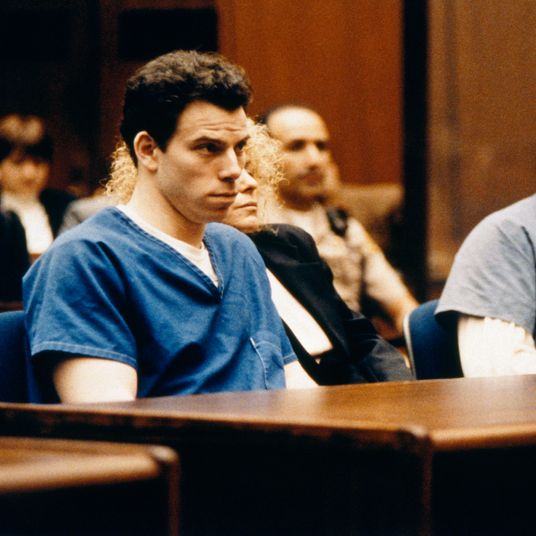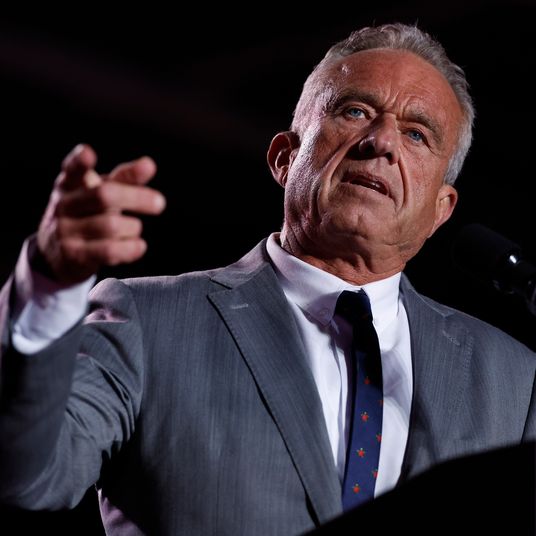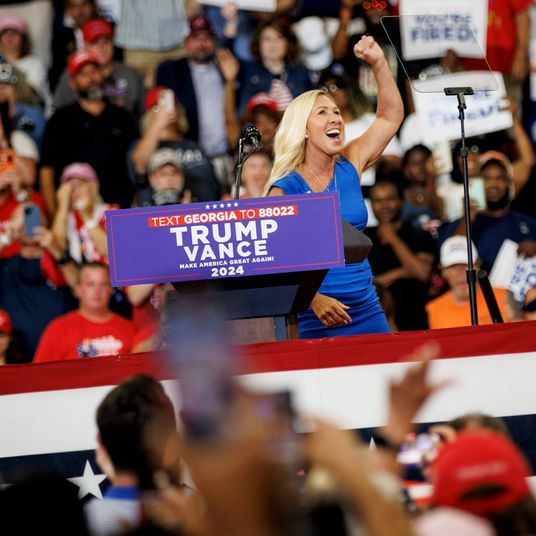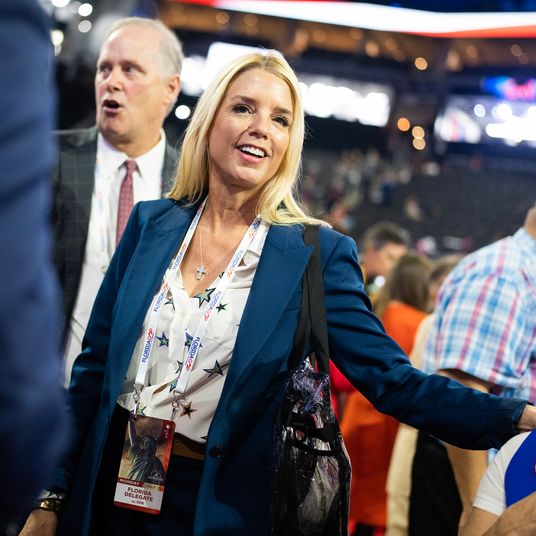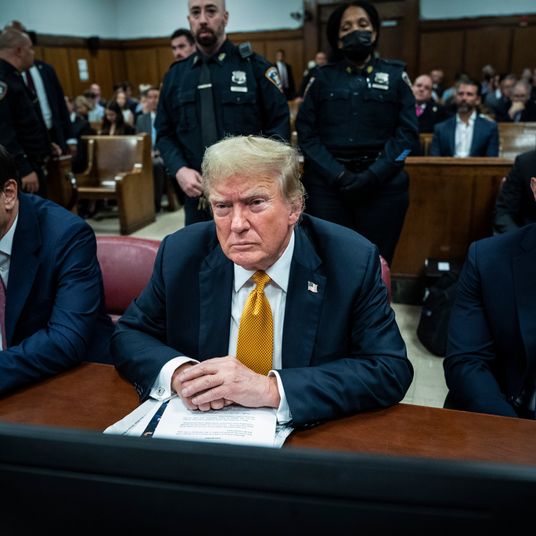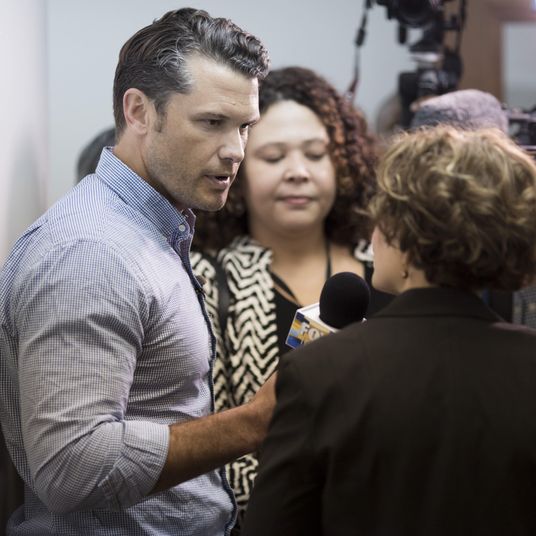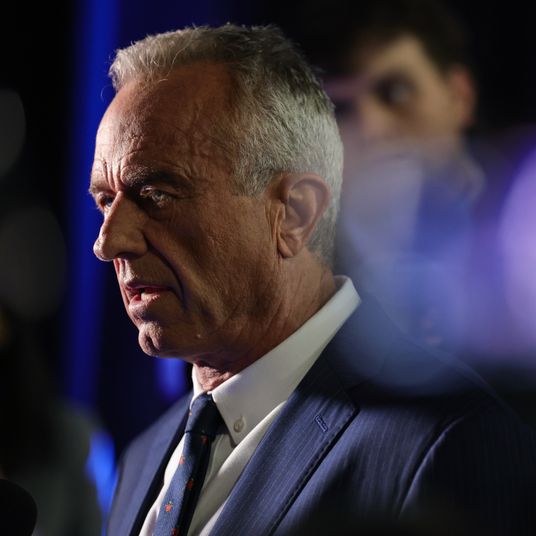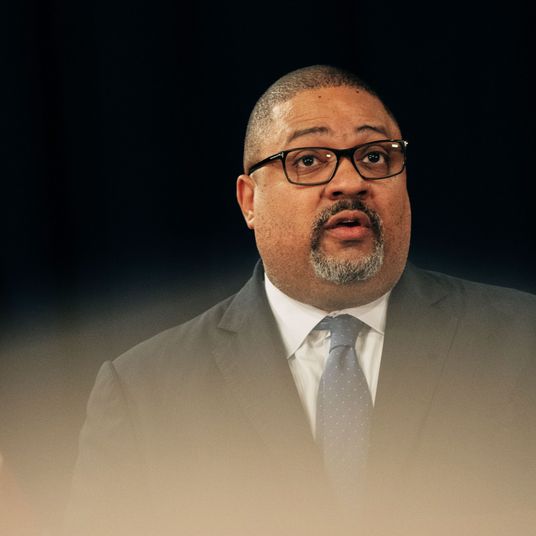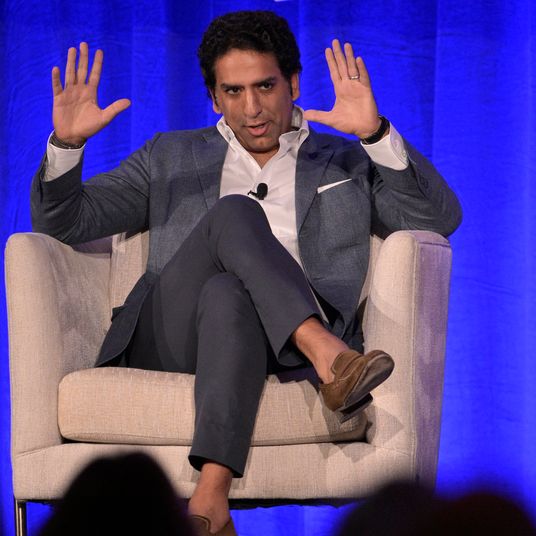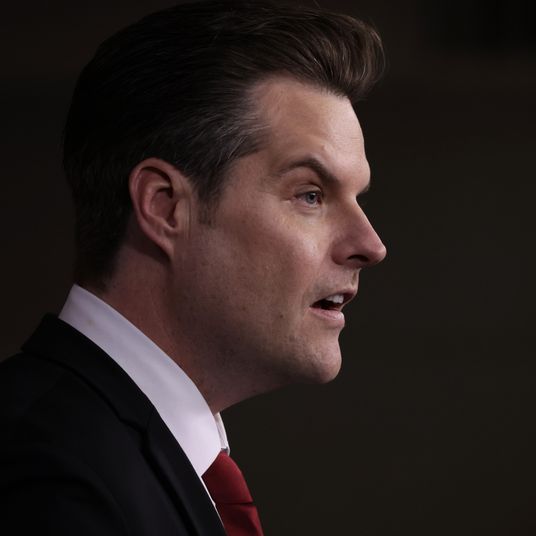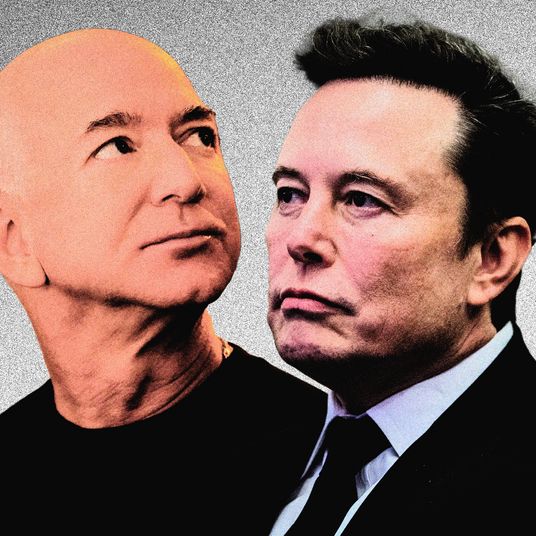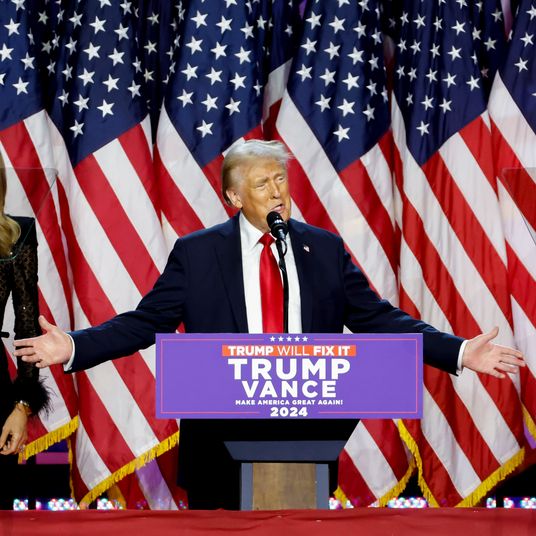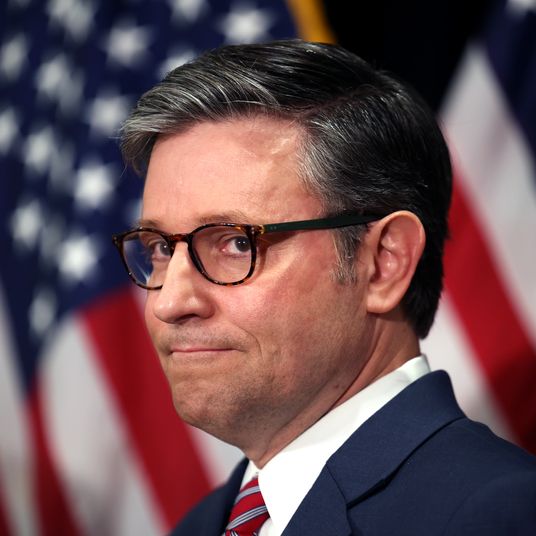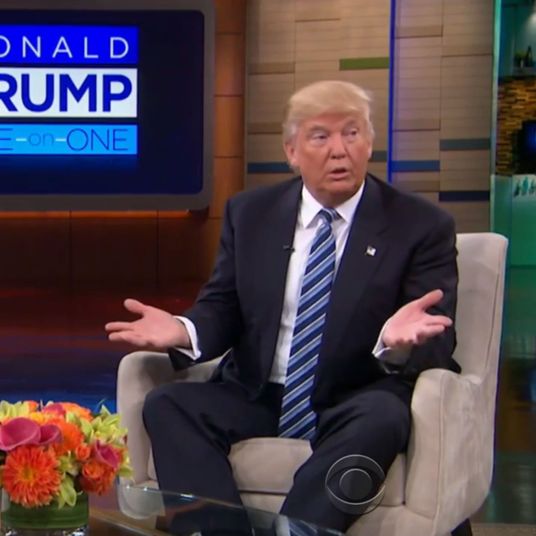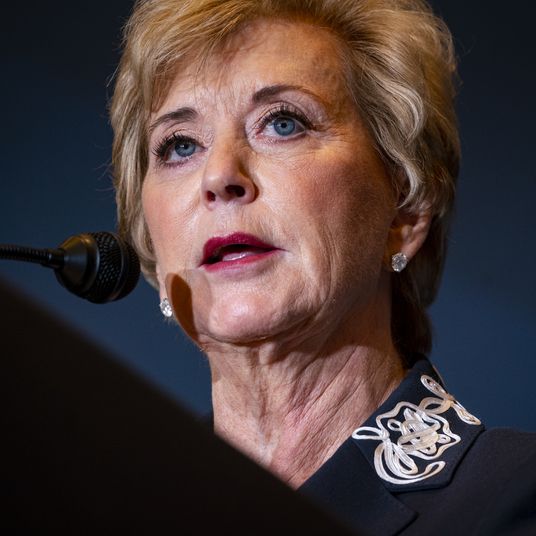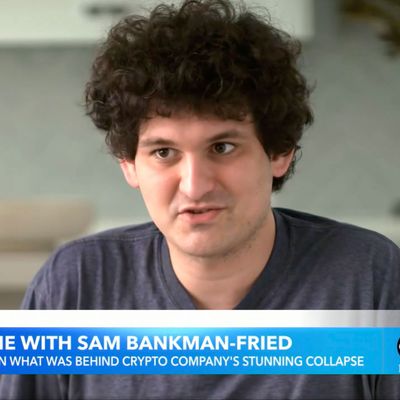
Sam Bankman-Fried has presided over a spectacular crypto collapse. He’s facing multiple investigations for allegedly defrauding customers and will soon be grilled by Congress. Many people might retreat from public view, but over the last couple of weeks, Bankman-Fried has granted interviews to seemingly anyone who asks: the New York Times, The Wall Street Journal, and New York, to name a few. He also holds court in live conversations across the internet with such frequency that his musings are no longer followed breathlessly by the press. In these appearances, Bankman-Fried comes off as contrite — or at least that’s the vibe he’s going for — and portrays all his mistakes as innocent ones, even if that explanation strains credulity.
To shine some light on Bankman-Fried’s modus operandi, I spoke with Eric Dezenhall, the founder of Dezenhall Resources, a crisis-management firm that advertises its ability to ”neutralize motivated adversaries” and “defy agenda-driven assaults.” For decades, Dezenhall has worked aggressively on behalf of embattled and often despised clients, from Enron to Exxon to the Sackler family. He believes that Bankman-Fried, far from being an outlier, is a familiar corporate type.
What do you think is going on with Sam Bankman-Fried’s media strategy?
These guys can’t help themselves. There’s always a duel between the lawyers and the communications people. The lawyers want you to shut up, the communications people want you to talk, and each is correct in accordance with their objectives. The challenge is resolving the question: What’s more important, staying out of prison or getting people to like you? Most of us would agree that staying out of prison is the objective. The problem is, when you’re dealing with megalomaniacal personalities who have a sense of destiny that is hard to fathom, they cannot believe this is happening to them. They are the last people to know what is happening to them. Because they have an evangelical belief in their own charm, they believe that the thing that made them will be the thing that digs them out.
Sam Bankman-Fried will probably go through multiple law firms. He will probably go through multiple crisis managers, because the belief is, “Because I was able to achieve outrageous success, why can’t I find the right lawyer who will call the right judge to make this go away? Why can’t I find the crisis manager who will be able to get a senator or the New York Times” to stand up and collectively agree that he’s been misunderstood?
As they said in the beginning of Peter Pan, this is a story that’s been told. All of this has happened before and all of this will happen again. It’s the same thing. The only thing that I think he’s doing that’s a little bit different is there is some level of reflection that you tend not to see from figures like this. Every corporate crisis I have ever worked on begins with the same three words, “It’s all bullshit,” no exceptions. He is not saying that this is all bullshit. He’s kind of meeting you halfway and saying that he messed up, but that it’s not a crime.
In his DealBook appearance, which kicked off this spate of interviews, Bankman-Fried said that his lawyers were “giving me the classic advisories: Don’t say anything, recede into a hole.” He claimed he was ignoring that strategy. Some people then got the idea that maybe this was all a clever plan, a savvy PR strategy to make him seem authentic and gain public sympathy ahead of his possible legal battles. You’re saying that’s all too convoluted, and we should just go with Occam’s razor here.
Go with Occam’s razor. The fact is, when you are dealing with people who have achieved a level of success that only a few hundred people on the planet can identify with, their view of lawyers and crisis managers is, “If you were so smart, you would be me, and so why bother listening to somebody in a suit who nobody’s ever heard of?”
You’ve experienced this kind of situation with former clients?
To no end. The most notorious cases you can imagine. One of the things I know at 60 that I didn’t know at 25 is the limits of the law and crisis management. In popular culture, a lawyer or a crisis manager is like a spy or a cop. They can do anything. That’s just not what reality will dictate. Bankman-Fried is making a gamble that he is right and the others are wrong, and the odds of that working out well for him are limited, but the odds of him being who he has been were limited in the first place, so why not try? He’s not wrong in believing that he is capable of incredible feats of persuasion. It’s just that we’re now dealing with a different thing.
In a Substack article you published about this, you wrote, “The fact that nobody knows what he’s talking about is part of the hustle, because at some level we’re all secretly afraid that we’re stupid, and it’s easier to nod along in a complicated pitch than raise your hand.” What struck me also about his recent interviews is that the way he explains his mistakes is also quite complicated. People think an interviewer is going in for the kill, and then it turns into Bankman-Fried droning on for 45 minutes. You think, Well, it does sound like he knows what he’s talking about here.
Enron was the same thing. But when you’re dealing with trying cases, even complicated cases, juries think on intuition. If you asked me, “Eric, did you steal my laptop?” and I said, “There are many great questions in life, existential, mathematical, theological, and when the sun sets on the solar system,” you’re thinking, “Oh my God, this guy thinks he’s smarter than me, and he’s lying.” Complexity is not your friend in court. It really isn’t, because when the people are given loads of data, it doesn’t make them believe you more. It makes them believe that you’re trying to fool them. What may have worked with venture capitalists and presidents is less likely to work in that area.
What would you be telling Bankman-Fried to do right now if you were working for him?
There’s a lot we don’t know right now. We don’t know whether he’s committed a crime or whether or not this was a business that failed. Somewhere on that continuum is where we are. We don’t know for sure now, because it all hasn’t been investigated and pressure-tested. If everything we’re hearing is wrong, he will be able to explain that, but that will take a while. The problem that he and a lot of clients that I have faced have is the desire for drive-through redemption — they want the life that they knew before back, and they want it today.
There is a better chance of long-term redemption than there is short-term, because the news cycle of the short-term has no interest in redeeming him. The vortex wants to hurt him. It doesn’t want to vindicate him. Look, it’s entirely possible that we’re going to find out that some of the things we learned in round one are not going to have been true in round seven. A lot of what I do now that I didn’t do decades ago is look further out.
You cannot help an individual client like this, because the individual client wants the redemption now. You can help a corporate client, because they have a longer time horizon. They have the money to defend themselves. Whenever I get a call that there’s a product recall at Ben Hart Industries, I’m asked, “Can the company survive?” Well, sure. These big companies do survive, because they have diversified products. They have a long time horizon. They have the resources. They’re probably going to survive. But for an individual to defend something like this is very hard no matter how rich he is. He wants his life back from the day before this blew up, and that’s just not going to happen anytime soon. It may happen over a period of years. The short advice is, alter your time horizon.
This interview has been edited for length and clarity.







